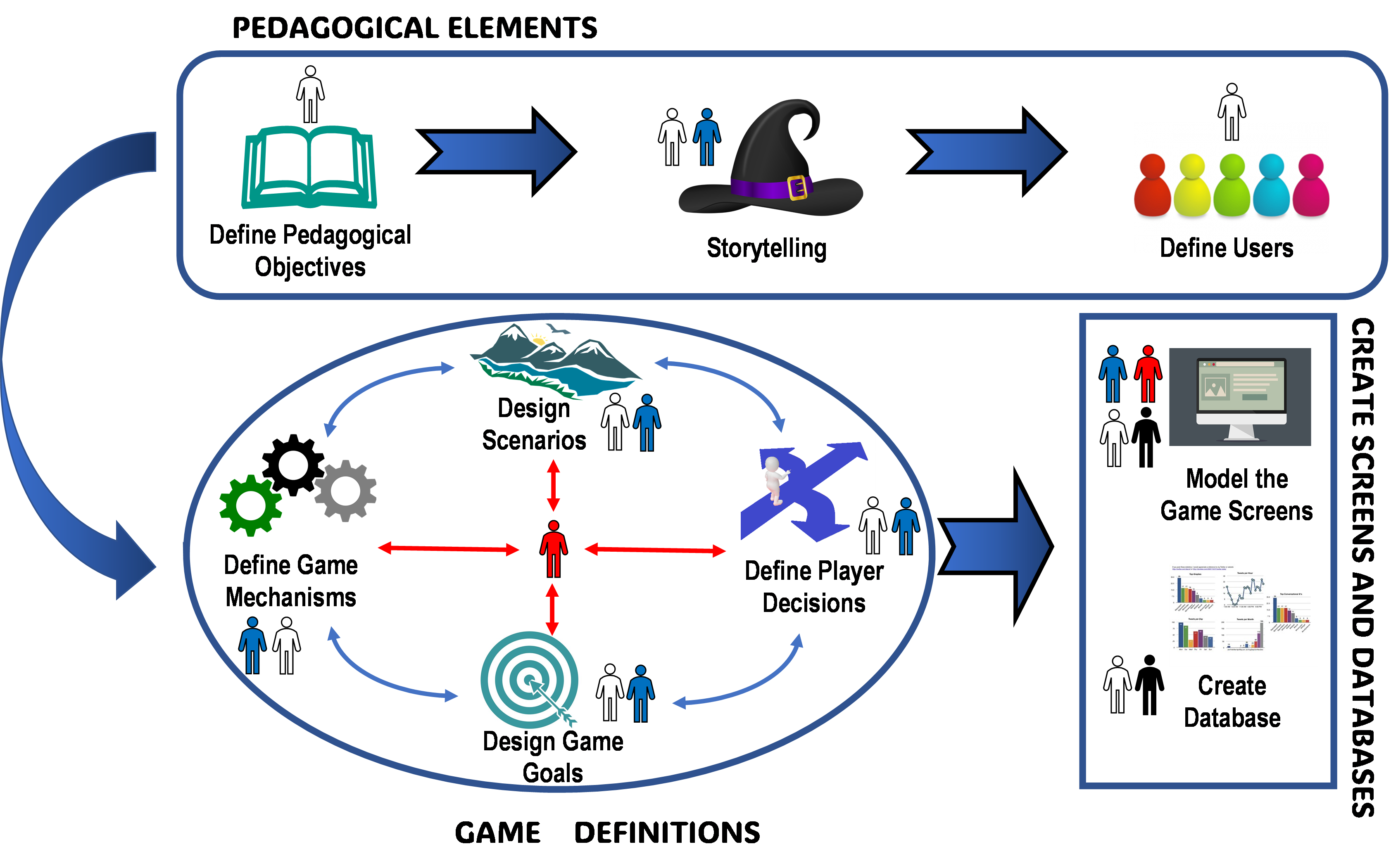How to Create Serious Games? Proposal for a Participatory Methodology
DOI:
https://doi.org/10.17083/ijsg.v10i4.642Keywords:
Serious games, Simulations, Simulation Games, Educational innovation, Higher Education, Game-Based LearningAbstract
The demand for practical, engaging, and enjoyable learning experiences has led to a shift in student preferences. Students now seek active learning approaches that prioritize their involvement and utilize technology. In response to this demand, simulators and serious games have emerged as effective strategies in education. Serious games offer numerous benefits, including the promotion of critical thinking, creativity, problem-solving skills, and improved knowledge retention. However, it is crucial to ensure that serious games are well-designed to maintain their appeal and playful nature. Inadequate requirements definition during the initial stages of development can lead to issues in game design. This article emphasizes the importance of establishing clear requirements and objectives in the creation of serious games for educational purposes. By doing so, effective serious games can be developed that meet the needs of students and align with educational goals. This systematic approach to game development ensures that the games are engaging, effective, and conducive to learning.

Downloads
Published
Issue
Section
License
Copyright (c) 2023 Ernesto Pacheco-Velazquez, Virginia Rodes-Paragarino, Lucia Rabago-Mayer, Andre Bester

This work is licensed under a Creative Commons Attribution-NonCommercial-NoDerivatives 4.0 International License.
IJSG copyright information is provided here.